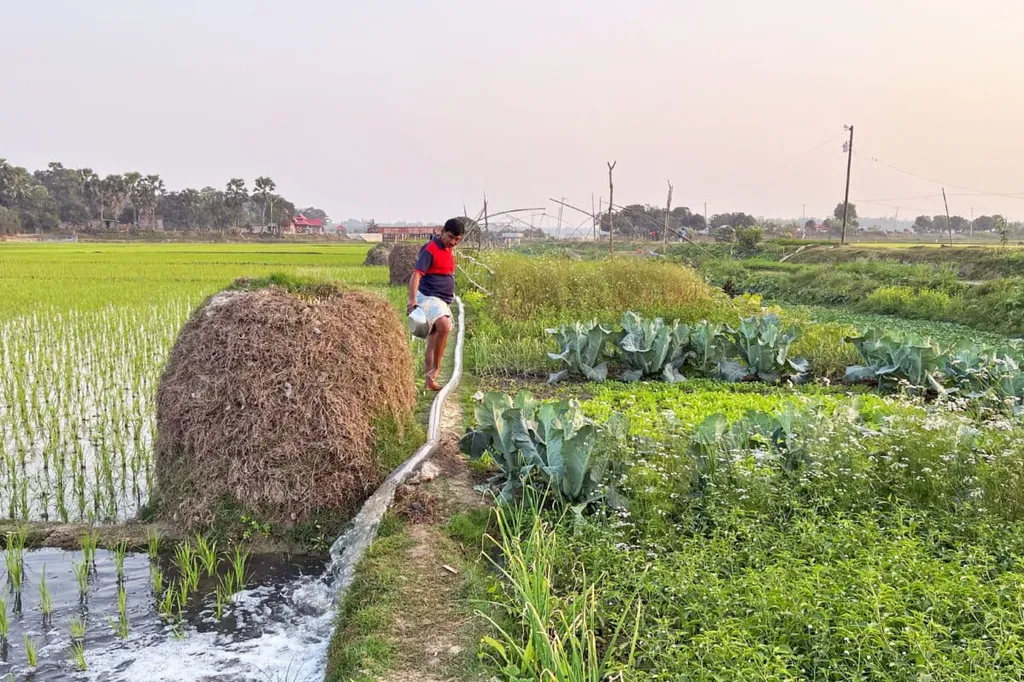In the heart of Bangladesh’s granary region, a critical study has shed light on the state of groundwater, a resource vital for both drinking and agriculture. The research, published in the *Journal of Trace Elements and Minerals*, reveals that while groundwater may not be ideal for drinking, it remains a viable resource for irrigation, offering a glimmer of hope for the region’s agricultural sector.
The study, led by Md. Shazzadur Rahman from the Department of Geology and Mining at the University of Rajshahi, assessed groundwater suitability using advanced methods like the entropy water quality index (EWQI) and conventional irrigation indices. Rahman and his team analyzed groundwater samples from multiple sites, evaluating major physicochemical parameters to paint a comprehensive picture of water quality.
“Groundwater in the study area is neutral to alkaline in nature and is dominated by calcium (Ca2+) and bicarbonate (HCO3-),” Rahman explained. This composition, characterized as a Ca-Mg-HCO3 water type, is influenced by calcite dissolution and ion-exchange processes. The research highlights that rock weathering, particularly of calcite, dolomite, and silicate minerals, largely governs the groundwater chemistry.
The findings indicate that 96.67% of the samples are unsuitable for drinking, with 76.67% classified as poor quality. However, the story takes a positive turn for the agriculture sector. The US Salinity Laboratory (USSL) diagram suggests low to medium alkali hazards, while Wilcox ratings range from permissible to excellent. Doneen’s classification places the samples in Class I, indicating high permeability, which is excellent news for irrigation.
“This research is a wake-up call for regular monitoring and effective management of groundwater resources,” Rahman emphasized. The study underscores the need for proactive measures to prevent further degradation and ensure long-term water sustainability, which is crucial for the region’s agricultural productivity.
The commercial impacts for the agriculture sector are significant. With groundwater remaining acceptable for irrigation, farmers can continue to rely on this vital resource to sustain their crops. However, the study also serves as a reminder of the need for responsible water management practices to maintain this balance.
Looking ahead, this research could shape future developments in the field by emphasizing the importance of integrating advanced water quality indices and hydrochemical analyses into water resource management strategies. As the agriculture sector continues to evolve, understanding and managing groundwater quality will be key to ensuring sustainable productivity.
In the quest for water sustainability, this study offers valuable insights and a roadmap for future research and policy-making. By highlighting the dual role of groundwater in drinking and irrigation, it underscores the need for a balanced approach that prioritizes both public health and agricultural productivity.

